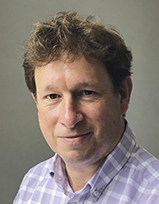Tributes have been pouring in from all over the music world to Nikolaus Harnoncourt. The death of the revered Austrian conductor, 86, was announced yesterday, just three months after he revealed that ill health had forced him to retire from the stage.
Among those to pay their respects is conductor Franz Welser-Möst, who describes his fellow Austrian as ‘an interpreter who changed our world more than any other over the past 50 years’, while violinist Gidon Kremer says that Harnoncourt was ‘always the most generous partner whose presence inspired me to focus on the deepest substance of the scores we performed and recorded together.’
In a career that lasted over 60 years, Harnoncourt was one of the most influential musicians of his era, not just as a conductor but, importantly, as a major scholar, pioneer and champion of the period instrument movement. His interpretations and ideas did not always meet with universal agreement, but he was widely admired and his performances were rarely dull.
Born in Germany of aristocratic stock – descended from the Habsburgs, his full name was Johann Nikolaus Graf de la Fontaine und d’Harnoncourt-Unverzagt – he began his musical life as a cellist, studying at Vienna Music Academy before joining the Vienna Symphony Orchestra in 1952. The following year, he founded the Concentus Music Wien ensemble which was devoted to researching historic practice and performing on period instruments.
Along with his fellow period-instrument expert, the Dutch organist and harpsichordist Gustav Leonhardt, Harnoncourt and Concentus Musicus Wien went on to make a series of groundbreaking recordings such as the choral works of Bach, in which he used boy trebles rather than sopranos. Aside from Bach, other composers to have been widely recorded by the ensemble included Purcell, Handel, Monteverdi and, perhaps most notably, Mozart.
He was not entirely tied to period-instrument performance, however, and his cycles of Beethoven and Schubert symphonies on modern instruments, with the Chamber Orchestra of Europe (1990) and Royal Concertgebouw Orchestra (1992) respectively, met with great acclaim. Nor was he averse to springing a surprise or two, such as when, in 2009, he decided to conduct and record Gershwin’s Porgy and Bess, fulfilling a career-long ambition.
Harnoncourt continued to conduct Concentus Musicus Wien right until his 86th birthday, building up an audience with whom he enjoyed a close personal relationship. When he found that he was unable to conduct any longer, he announced his retirement to them with a handwritten note in a concert programme.
Among those to have express their sadness at Harnoncourt’s death is Lang Lang, with whom he recently recorded Mozart piano concertos. ‘He was such a special, genuine, sincere, and talented musician and human being,’ says the pianist. ‘He taught me so much and opened up musical doors for me – especially with Bach, Beethoven, and of course, Mozart.’
